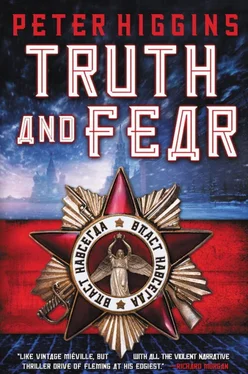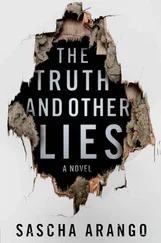In panic, reflexively, Lom slammed up a wall against the mudjhik. It was like holding up his hand. Stop!
The mudjhik stumbled and fell to its knees.
Lom was stronger now, much stronger. He felt the current flowing between him and the charging alien weight, the mudjhik’s alien substance connecting with something tense and fizzing in his own bones and flesh. Lom felt wired and burning. The link between the mudjhik and its handler was a feeble shadowy thing by comparison, a tenuous thread. Lom knew what to do. He broke the handler’s cord. Squeezed it closed and ripped it out at its root. Felt for a second the handler’s surprise as he lost connection.
The mudjhik was on its feet again, confused and clumsy, rumbling and roaring silently, lashing out at tree trunks with its fists. It was at a loss. Lom pushed himself deeper inside it, feeling for the animal part of it, the inserted mammalian brain. He found it and crushed its awful half-existence out. The mudjhik’s mind clouded. Sensation without motion. Without desire. A lump of sentient rock.
Late in the afternoon Lom and Florian crested a rise and found themselves on a low hilltop looking out across a wide shallow valley. The railway plunged out across a viaduct above the grey-brown leafless canopy of trees. Five or ten miles away, on the far side of the valley, the mountain was a wall across the sky. And in the plain of the valley floor between them and the foot of the mountain lay the closed township of Novaya Zima.
From a distance Novaya Zima looked like a complex device with its back removed–a radio, a telekrypt machine–laid bare amid birch trees and snow. The township hummed and rumbled quietly. No smoke. No chimneys. It was a rectangular grid about three miles square, a compound in the wilderness surrounded by a double fence and a perimeter road. The streets formed blocks, and the blocks were buildings, orderly and rectangular, mostly concrete, ten or fifteen storeys high. Every part of the town was wired to every other part by a network of cables slung between roofs and from tall wooden poles. In the centre of the town, wider streets–avenues, prospects–converged on a spectacular cluster of taller buildings, slender constructions of steel and glass, reflecting the lead-grey sky. Motor vehicles moved with orderly precision along arterial boulevards. Pedestrians, rendered tiny by distance, anonymous and without characteristics, moved along pavements and crossed open expanses of concrete. Raised above the streets on piers of iron, an overhead railway carried snub-nosed carriages. And on the far side, beyond the town and a couple of miles of scrubby trees, the mountain climbed sheer and almost vertical into low cloud. Dark grey rock and scree and streaks of snow. It was like a wall across the world, diminishing east and west into misted distance and further mountains.
Lom and Florian watched from the cover of the trees. It was a town for thousands of people, tens of thousands, freighted in piece by piece across the continent, secretly, and assembled by dying slaves.
‘And the labour is still coming,’ said Lom. ‘There were half a dozen trains yesterday, at least. So where are they? The town’s not for them. That’s not housing for penal labour. I don’t see camps. I don’t see factories. I don’t see cranes and holes in the ground. So where do they go?’
The rail track crossed the valley floor on viaducts and embankments, bisected the township, cut though an expanse of marshalling yards to the north, and plunged on into a low dark mouth in the mountainside.
‘The mountain,’ said Florian. ‘They go into the mountain.’
There was a gate where the railway entered the township. An asphalt road came out and looped away into the trees to circle the town. The gate stood open, the guard post deserted. It was the middle of the afternoon.
‘No security,’ said Lom. ‘Lazy.’
‘Isolation,’ said Florian. ‘Who could find their way here? And who could leave? Where would they go?’
‘We got here,’ said Lom.
There was a sign at the gate. A huge billboard meant to be read from incoming trains.
NOVAYA ZIMA
VLAST FOUNDATION FOR PHYSICO-TECHNICAL MACHINES
REFORGING HUMANKIND.
YESTERDAY ENVIES US. TODAY IS OUR DOORWAY. THE FUTURE BEGINS.
THE VLAST SPREADING OUT ACROSS THE STARS.
They walked into the town unchallenged. It seemed colder in the streets than it had been under the trees. Colder than Mirgorod, but not the same cold. Mirgorod cold had an edge of ocean dampness, but the air in Novaya Zima was dry. Lom felt its bitterness desiccating his face, as if his lips would crack. His breath wisped drably away. The snow on the pavement crunched underfoot. Dusty snow, like crystallised ash.
For the first ten blocks or so the streets were given over to huge communal barracks for collective living. Kommunalki. Lom had read about such new-style buildings–embodiments of a new, less individualistic mode of life, the basis for modern developments in the industrial belt to the south–but he hadn’t seen any, not till now. The buildings were new but already stained and shabby: hastily thrown up to a uniform pattern, the concrete blistered and bled rust where the steel reinforcing rods were too near the surface. Street-level heating vents breathed steam clouds across the pavements. On the ground floors there were public dining halls, public laundries, public baths. They walked past a school with street-level windows. NOVAYA ZIMA JUNIOR LYCEUM FOR THE SONS AND DAUGHTERS OF WORKERS.
Workers? Lom studied the people in the streets. They had neat sombre clothes and smooth white hands. They were clerks, administrators, secretaries, teachers, junior white-collar engineers: more than half were young women. They looked efficient. Nobody was poor and nobody was old and everybody was moving along, eyes down, unspeaking, each in their own small sphere of inwardness and temporary privacy. The rail transit rumbled overhead on its single track.
Nearer the centre of town the buildings were taller and better built. Polygons of steel and glass, each set back in its own apron of concrete and paving. Benches. Kiosks. Cafés. Parks behind railings, leafless and wintry. A deserted outdoor skating rink. An open-air swimming pool with a green and white tiled façade under a low curved roof. Scarves of steam drifted across the surface of the water. Swimmers in bathing caps ploughed steadily up and down the lanes. RESTORE YOURSELVES, CITIZENS! LEISURE REBUILDS! HEALTH IS A PLEASURABLE DUTY!
Florian stopped outside a restaurant with a wide glossy vitrine. the magnetic bakery. Shining tables of polished yellow deal on legs of tubular chrome. It was almost empty.
‘We should split up,’ he said. ‘We need to know when Chazia is coming. It’ll be easier if I go alone.’
‘Why?’ said Lom.
‘Because one person is better,’ said Florian.
‘So why you not me?’
‘Because they will tell me what we need to know.’
‘You’re just going to walk into a VKBD station and ask them?’
‘No,’ said Florian. ‘Captain Vorush Iliodor will ask them. Captain Iliodor is Commander Chazia’s aide-de-camp. I carry his identification and warrant cards.’
‘Out of uniform and without Chazia? They’ll want to know what you’re doing here. They’ll want to know why you don’t already know her plans better than they do.’
‘They may wonder,’ said Florian. ‘In my experience they will not ask.’
‘Do you even look like this Iliodor? What if somebody there knows him?’
Florian raised an eyebrow quizzically.
‘Oh,’ said Lom. ‘Of course. Sorry.’
Читать дальше


![Кэмерон Доки - Правда и ее последствия[Truth and Consequences]](/books/79610/kemeron-doki-pravda-i-ee-posledstviya-truth-and-con-thumb.webp)









